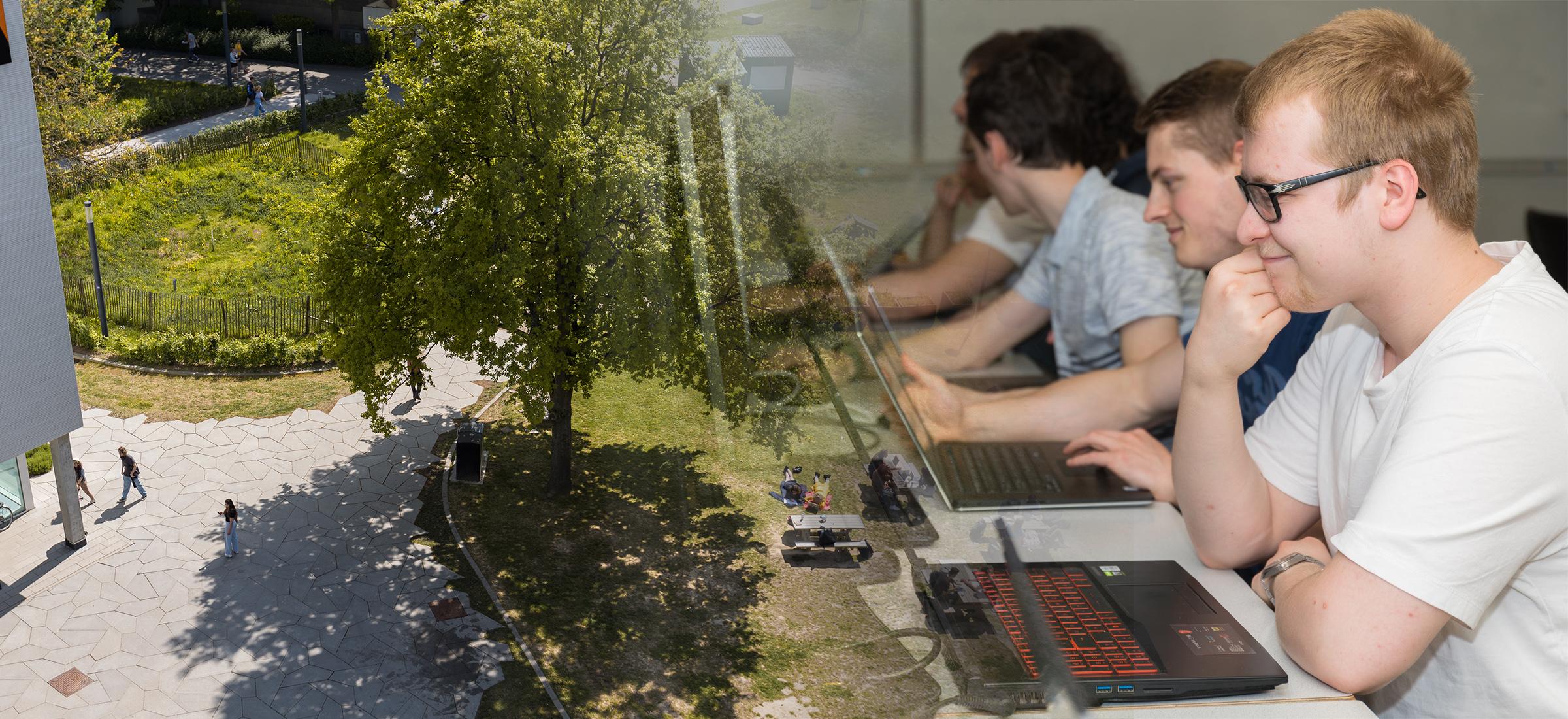
Educational quality of the programme
At VUB the quality of the education takes centre stage. This isn't something we say lightly: we scrutinise our programmes regularly to align them with changing student needs in a rapidly changing society. Additionally, the engineering programmes in Flanders are audited by an external commission: Commission des Titres d’Ingénieur (CTI, France).
This public information is part of VUB’s quality assurance system and was ratified by the Academic Council on 19/06/2023.
Strenghts of the programme
-
International and cutting-edge research network: lecturers of the programme are collaborating with several renowned universities in Europe and the UK, the USA, and China. This enables students to work in the joint laboratories offered by the network.
-
Broad education: the programme provides a broad education in data science and engineering with focus on generic smart systems design. The programme is complemented with elective minors in fields such as digital health, smart cities, digital earth, and business intelligence.
-
Personal guidance: student coaches are appointed amongst the academic staff. They follow up, monitor and support the progress of a group of first-year students. Gaps in knowledge can swiftly be identified and addressed.
Opportunities for development
- The double degree with a minor in Business Intelligence, offered since 2019-2020 in cooperation with the Technical University of Cluj-Napoca (TUCN), Romania, is expected to enhance the number of international exchange students.
- Challenges such as protecting public health and preserving water and other natural resources are pertinent to the minors Digital Health, and Digital Earth. The urgency of these topics makes it possible for the programme to apply for extra funding from Erasmus and ICP VLIR-UOS scholarship programmes.
What is the programme working on now?
- Continuous efforts are made to strengthen the relation with the industry and the alumni. A dedicated LinkedIn page has been set up to facilitate the follow-up of graduates and to stay in contact with alumni. A structural cooperation with the central alumni service has also been set up. Furthermore, the programme would like to involve alumni in the programme by setting up seminars or workshops.
- The newly implemented system of intake-interviews is being evaluated and improvements for the next round of registrations have been identified and are set to be carried out.
- A comparison with similar programmes in Flanders and abroad (benchmarking) keeps the curriculum competitive and clarifies the programme’s profile.
- A discussion with representatives of the work field has been organised in order to gain more insight in the needs of the work field and the experience with VUB graduates. As a result, new relationships are forged with several companies interested in offering internships.
- The organisation of the internship is being finetuned and the programme monitors the impact of changes made.
Where do we get this information from?
As institution we routinely ask our students to give their honest opinion about the study programme during their academic career. We also consult our professors and assistants and gauge the expectations in the future field of work. We receive structured feedback from our former students and compare our programmes with others at home and abroad. Through a Peer Review every six years an expert panel endorses the programme’s assets and can recommend some actions. Lastly, the Education Quality Council takes a formal decision about the quality and functioning of a programme.
Quality Cycle
Each programme follows a six-year quality cycle. The timeline below shows the schedule for this particular programme.
